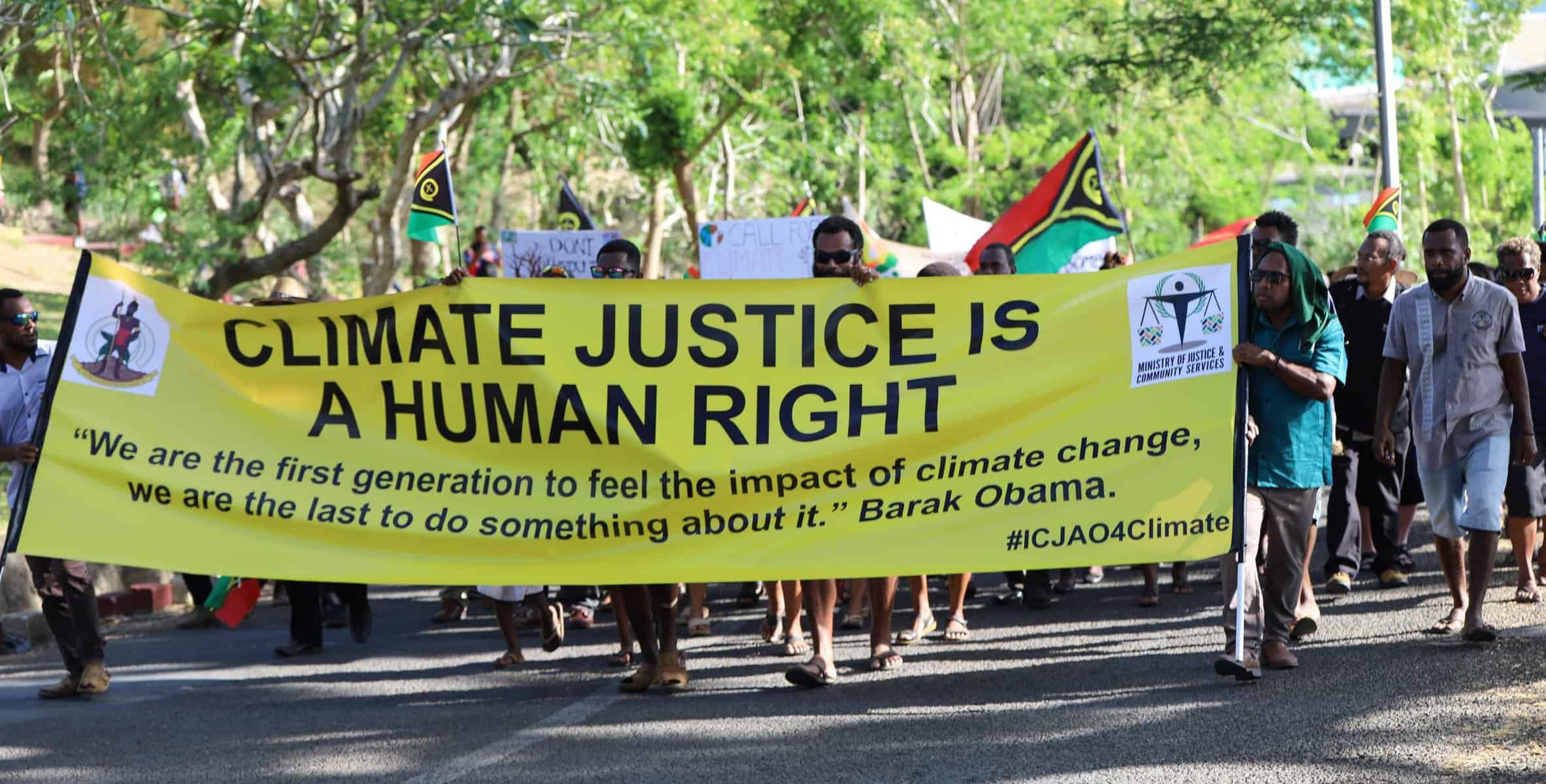The United Nations’ adoption of a resolution calling for an advisory opinion from the International Court of Justice (ICJ) on the obligations of States on climate change, is a victory for the Pacific, and for a group of former law students, who first mooted the action four years ago.
The campaign that led to the resolution was first conceived in a USP law classroom, with the students involved organising to form Pacific Islands Students Fighting Climate Change (PISFCC) and building strong government and civil society coalitions around their campaign.
In 2021, Vanuatu’s government took up the resolution and the momentum really started building. Ultimately more than 100 countries cosponsored the resolution, 14 of them Pacific Islands.
The United States however held out, with the US deputy representative to the UN Economic and Social Council (ECOSOC), Nicholas Hill saying after the vote: “We have serious concerns that this process could complicate our collective efforts and will not bring us closer to achieving these shared goals. We believe that launching a judicial process–especially given the broad scope of the questions–will likely accentuate disagreements and not be conducive to advancing ongoing diplomatic and negotiation process.”
Next steps
The ICJ has confirmed it has been asked to consider two questions.
The first is: what are nations obliged to do under international law to ensure the protection of the climate and environment from greenhouse emissions?
Secondly, it must consider the legal consequences if nations, either by their actions or failure to act, have caused significant harm to the climate and the environment, in particular on small island states that are especially hard hit or vulnerable to the effects of climate change, and “peoples and individuals of the present and future generations.”
Written statements to the ICJ are due by October 20. Written comments on those statements are due by 22 January 2024.
The court will also hold public hearings, where nations and organisations can make statements. The opinion of the ICJ’s 15 judges will be delivered at a final public hearing.
The legal implications of ICJ opinion are subject to some debate.
Samoan jurist Tuiloma Neroni Slade is a former Secretary General of the Pacific Islands Forum, and has served as Chair of AOSIS and a judge on the International Criminal Court. Speaking to the ANU College of Law this month, Tuiloma highlighted the importance of the initiative.
“The ICJ is the principal legal organ of the United Nations under the UN Charter,” Tuiloma said. “If it comes up with an advisory opinion requested by the United Nations General Assembly, in my view, it is binding on the United Nations. If you accept that type of reasoning, then it is more than an authoritative statement of international law on state responsibility. It must have at least a guiding authority for the UN General Assembly itself and of UN agencies.”
Tuiloma noted that several international courts have now been asked for opinions on climate change: “There are actually three courts that have been asked for advisory opinions, not just the ICJ, but also the International Tribunal on the Law of the Sea, as well as the Inter-American Court of Human Rights.”
He stressed that human rights are at the heart of the discussion: “Climate change starts with people and ends with people, it has to be about human rights. When you’re denied the right to life, the right to food and shelter, these are all impacts on human rights.”
Dame Meg Taylor, former Forum Secretary General, also told the ANU legal seminar: “The purpose of the ICJ submission is to look at what state responsibilities are. It’s an advisory opinion and not legally binding. The quality of the submissions to the ICJ from Pacific Island countries and from other countries in Africa will need to be very forceful, with arguments that could set up a situation where litigation may happen.”
The ICJ opinion could also inform climate lawsuits around the world and while it will not be delivered before the UN climate summit in the United Arab Emirates in November, it could influence the discussions.
Last year’s summit created a fund for climate change-related loss and damage. While the fine details of that fund are still being negotiated, the UN resolution strengthens the position of particularly climate vulnerable states, like those of the Pacific, that more funding for adaptation and mitigation is required.
In his statement to the UNGA, Vanuatu Prime Minister Ishmael Kalsakau said an ICJ opinion would carry enormous legal weight and moral authority: “Vanuatu sees today’s historic resolution as the beginning of a new era in multilateral climate co-operation, one that is more fully focused on upholding the rule of international law and an era that places human rights and intergenerational equity at the forefront of climate decision-making.”
The UN vote came days after the final Intergovernmental Panel on Climate Change (IPCC) assessment report warned that: “There is a rapidly closing window of opportunity to secure a liveable and sustainable future for all.” The report continued that while humanity stands at a precipice, the tools are available to “secure a liveable and sustainable future for all.”
“This isn’t the end of our campaign for climate justice. The court process will unfold, taking evidence from around the world,” said Fiji’s Vishal Prasad, a campaigner for PISFCC.
“The real work begins in applying whatever the court advisory opinion says in domestic law, especially in countries that continue to drive the climate crisis with their toxic emissions.”
